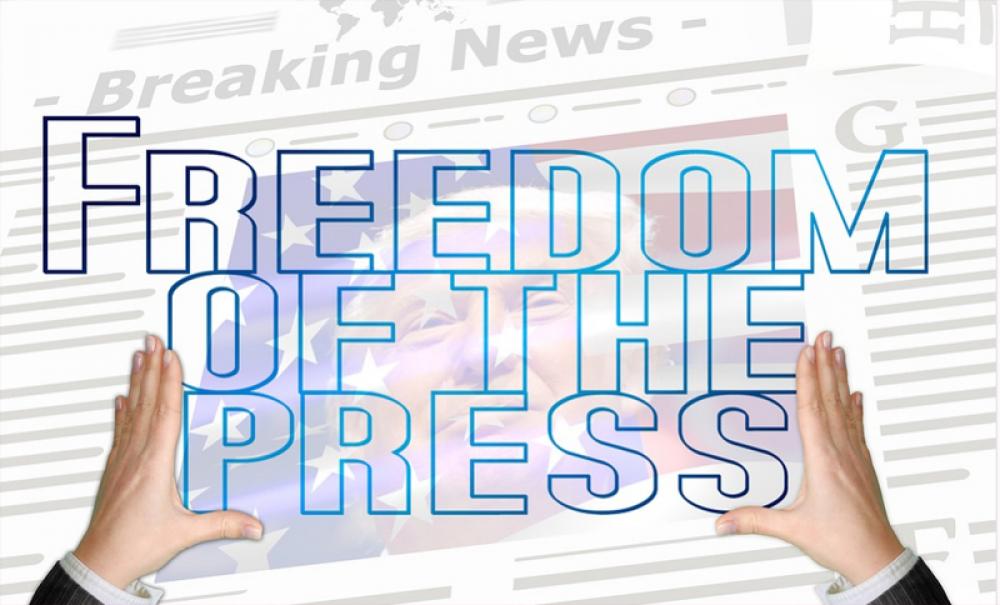Just Earth News | @justearthnews | 22 Apr 2020, 11:58 am Print

Islamabad: Displaying the tough situation of journalists in the country, Pakistan has slipped three more positions in the latest Reporters Without Borders' 2020 World Press Freedom index and now stands at the 145th position.
In the index released in 2019, the country stood at 142nd position.
In its analysis about Pakistan, RSF said: "Media outlets have been threatened with the withdrawal of advertising. The signals of TV channels that gave airtime to opposition representatives have been jammed. Journalists who dared to broach subjects deemed off limits by the military have been subjected to ISI-orchestrated harassment campaigns."
"After reining in the traditional media, the establishment has set about purging the Internet and social media of content not to its liking. To that end, the government is trying to step up online “regulation,” by which it clearly means censorship," read the website.
"Journalists meanwhile continue to be at risk in the field, especially in the western provinces of Baluchistan and Khyber Pakhtunkhwa, where reporters are caught in the crossfire between the security forces and armed rebels. Four journalists and a blogger were killed in connection with their reporting in 2019. And, as has been the case for at least a decade, there was total impunity for crimes of violence against journalists," it said.
Norway topped the chart.
While China stood in the 177th position, North Korea stood at the bottom of the chart.
The 2020 World Press Freedom Index, compiled by Reporters Without Borders (RSF), shows that the coming decade will be decisive for the future of journalism, with the Covid-19 pandemic highlighting and amplifying the many crises that threaten the right to freely report independent, diverse and reliable information.
This 2020 edition of the Index, which evaluates the situation for journalists each year in 180 countries and territories, suggests that the next ten years will be pivotal for press freedom because of converging crises affecting the future of journalism: a geopolitical crisis (due to the aggressiveness of authoritarian regimes); a technological crisis (due to a lack of democratic guarantees); a democratic crisis (due to polarisation and repressive policies); a crisis of trust (due to suspicion and even hatred of the media); and an economic crisis (impoverishing quality journalism).
“We are entering a decisive decade for journalism linked to crises that affect its future,” RSF secretary-general Christophe Deloire said. “The coronavirus pandemic illustrates the negative factors threatening the right to reliable information, and is itself an exacerbating factor. What will freedom of information, pluralism and reliability look like in 2030? The answer to that question is being determined today.”
- Viral Irish food bank photo sparks shocking racist attacks on Indians
- Caught on camera: Two foreigners assaulted in Israel in an alleged racial attack
- Pakistan: Parents heartbroken after court sides with man accused of kidnapping minor Christian girl
- Pakistan: Trafficked 35 years ago, Bangladesh-born woman approaches court against FIA for offloading her from flight!
- Hindu tea worker found bound and bloodied in Bangladesh garden during general elections; investigation underway





-1763561110.jpg)
